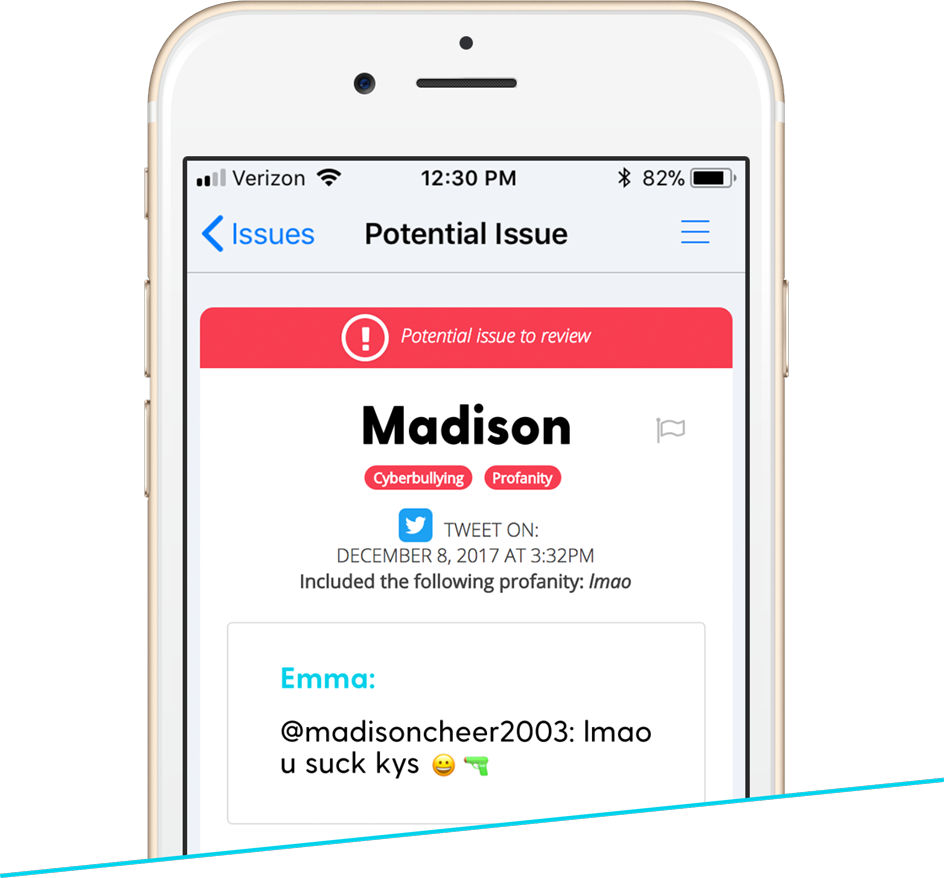Blue Whale Challenge – just those three words, which represent one of the internet’s deadliest suicide games for kids, are sure to strike terror in the hearts of any parent. But that’s not all. Thanks to the internet, your child’s smartphone, tablet and PC have also morphed into portals that let in bullies, sadists, drug dealers and sexual predators of all kinds. It’s no small wonder then that a wide-range of parental control apps are cropping up everywhere. Atlanta-based Bark is one such parental control app for iPhone and Android devices that seeks to protect the young from online evils, while also respecting their right to privacy.
In August 2018, this watchdog for kids’ and teens’ internet security announced a $9M Series A funding. The round, led by Signal Peak Ventures, also received participation from Two Sigma Ventures, Symmetrical Ventures, Fuel Capital, Hallett Capital, and Atlanta Seed Company.
Say Goodbye to Helicopter Parenting
 A report by Computer-Supported Cooperative Work and Social Computing (CSCW), claims that 28% of teens inform their parents when an online situation bothers them. What about the remaining 72%, you ask?
A report by Computer-Supported Cooperative Work and Social Computing (CSCW), claims that 28% of teens inform their parents when an online situation bothers them. What about the remaining 72%, you ask?
Bark tries to answer this question by helping youngsters work with parents to catch disturbing online activities on their connected devices. It even tries to address issues such as sexting and mental health concerns in a non-intrusive manner.
“We don’t advocate spying,” said Titania Jordan, Bark’s chief parent officer, while speaking to Atlanta Inno. “We don’t advocate helicopter parenting and we don’t believe children aren’t going to explore…we were all there. We had more leeway to make mistakes and not have them captured.”
72% of teens don’t inform parents of disturbing online experiences
When Michelle Mays’ daughter started high school she knew the child needed to be kept away from horrors lurking online. Like any worried parent, even May wanted to keep track of her daughter’s online activity. But how does one go through (and decipher) thousands of their kid’s social media messages, emails and SMSes without being invasive? Not to mention how exhausting, ineffective and time-consuming it can be, considering the sheer volumes of data to be crawled through. That’s when she chanced upon Bark. May claims that the app allowed her daughter a ‘little more freedom’ and privacy as compared to other restrictive parental control apps. At the same time, it does its job of keeping children safe from cyber bullies and predators.
TechCrunch even quoted Jordan saying, “Having Bark connected to your child’s devices and accounts is similar to wearing a seatbelt. You would not let your child drive a car without wearing one, so why give them a device that can access the world 24/7/365 without a safeguard?”
All that parents need to do is sign into the bark website or mobile app and get their kids to sync their social media pages to the site. The app also pairs with a Bark companion app on the kids’ phone.
Their methodology is simple: Monitor.Detect.Alert. Once this linking is done, using artificial intelligence, Bark helps keep tabs on kids’ activity across 24 different social media platforms, email, and even text messages. It even analyzes images, emoticons and gifs. If Bark’s algorithm catches anything as a potential threat, it deploys an alert to the parent’s app.
Ditch other run-of-the-mill parental control apps
Priced at $9 per month or $99 per year, for the whole family, Bark users can track unlimited apps, enjoy proactive support 24/7 and cancel the subscription anytime. Though competing Internet safety solutions cost between $5 and $12 per month, none of them support the scanning of SMS and MMS messages on iOS and Android. Founder and CEO of Bark, Brian Bason, shared with Techcrunch that this is the “secret sauce,” to the app recipe.
The SaaS-based digital safety platform also has an intelligent system that, unlike simple keyword searches, employs data labelling, pattern matching and machine-learning to analyze conversations for context and history before categorizing them. Machine learning also helps Bark stay updated with the latest slang. So if someone says 182 (slang for ‘I hate you’), Bark would be able to tell if the message was said in jest in the context of some joke cracked previously or if it was typed out in malice.
Bark also has a strong advisory board comprising of researchers, child psychologists, and enforcement professionals. Once an issue is detected, the SaaS platform makes an effort to guide parents into tackling the matter, in a sensitive manner without alienating the child.
Claiming to monitor four times more platforms than any other child monitoring app, Bark has won awards from The National Parenting Center, Mom’s Choice Awards, and National Parenting Product Awards.
Privacy and Security
With all the data being accessed by the app, the obvious next question that arises revolves around privacy. To quell such fears, Bark claims to secure all records of your kid’s online activity with state-of-the-art SSL encryption. The software can read and view information from your child’s accounts but cannot store it on their own servers indefinitely. The startup also toes the line when it comes to standards required by the Family Educational Rights and Privacy Act (FERPA).
What’s more, complying with the Children’s Online Privacy Protection Act(COPPA), Bark doesn’t allow children under the age of 13 to use the app without their guardians sharing consent in the form of their credit card details.
Bark from the Past
 The parental control app was founded by a bunch of dads who just wanted to keep their kids out of harm’s way in the internet-age, at the TechCrunch Disrupt NY 2016.
The parental control app was founded by a bunch of dads who just wanted to keep their kids out of harm’s way in the internet-age, at the TechCrunch Disrupt NY 2016.
One of the founders, Bason, has an impressive 15+ year career in the digital space. But it was only when his two children became old enough to own smart devices that he began to wonder how to keep his son safe online.
“What I found were tools that rely on time-intensive parental reviews of every message, Tweet and text, or systems based on simple keyword searches. I created Bark to provide parents with a more advanced and time-saving alternative for their families,” Bason revealed in a press note.
In July 2015, Bason resigned from Twitter and initiated work on Bark for Parents.
Since most schools do not monitor the content being exchanged by students on their school email and Google Drive accounts, they are susceptible to cyberbullying and violence. Shook by a high school shooting in Florida, in Feb 2018 Bark began to offer its services free of cost (for life) to schools across the nation that use Google’s G Suite for Education and Microsoft Office 365 Education. Close to 1,000 schools had signed up, at last count.
The startup runs Bark for Schools as their CSR initiative, while the revenue comes entirely from their Bark for Parents product.
Then in March 2018, Bark went on to raise $4M. This corpus was used to build a strong team and increase the quantum of partnerships with schools and corporations. Today, it has users in all 50 states across the US. The company also claims to have helped prevent 33 suicides and 12 school shooting and bomb threats, by analyzing over a billion messages.
The freshly-raised capital, from last month, will be used by Bark to extend its product offering along with its reach to new markets. Apart from focusing on educating parents on digital parenting, branching out into gaming platforms, product development and scaling, Bark also hopes to add multi-language support.
Subscribe to our newsletter



